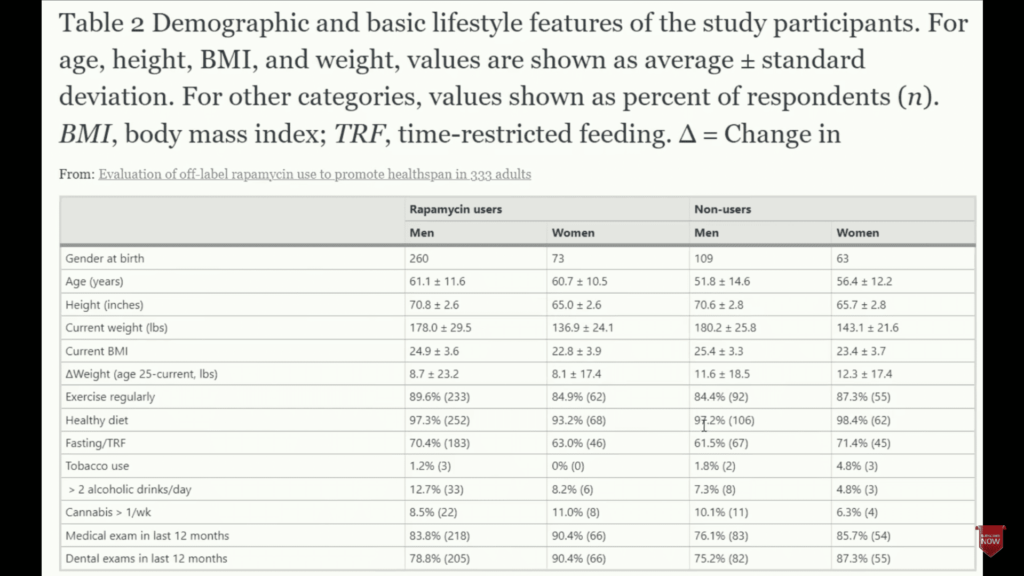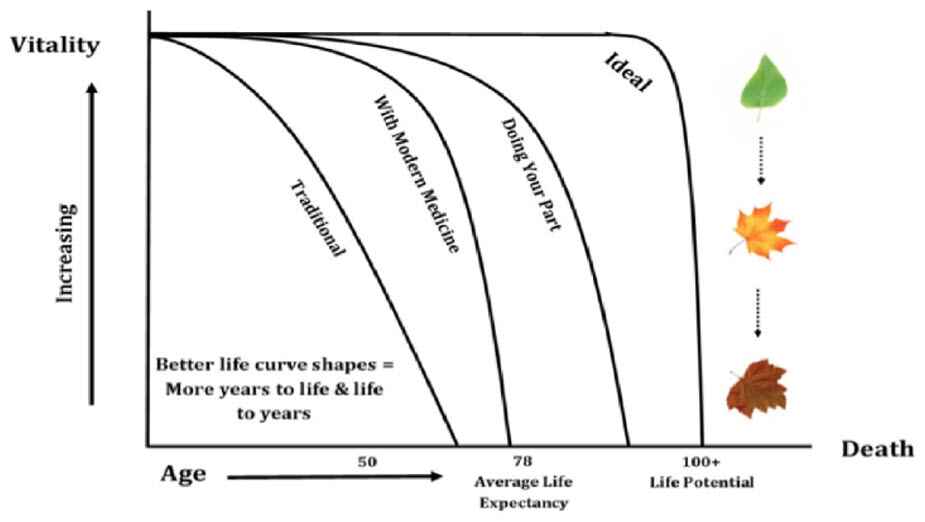For anti-aging, the ideal dosage of Rapamycin ranges from 0.1mg to 20mg per week. Rapamycin, a potential longevity drug, can offer anti-aging benefits through low doses.
Rapamycin, a drug that has shown promise in extending lifespan and delaying aging, has garnered significant interest in the field of anti-aging. Understanding the correct dosage of Rapamycin is crucial, as experimental studies suggest that even low doses could play a role in slowing down the aging process and promoting longevity.
With ongoing research and discussions around the optimum dosage for anti-aging effects, individuals are exploring the potential benefits of Rapamycin in achieving a healthier and prolonged lifespan.

Understanding Rapamycin
Rapamycin, a promising compound in the realm of anti-aging research, is garnering attention for its potential longevity benefits. Let’s delve deeper into the mechanisms and advantages of using Rapamycin for anti-aging purposes.
Mechanism Of Action
Rapamycin operates by inhibiting the mechanistic target of rapamycin (mTOR) pathway, a key regulator of cellular growth and metabolism. By disrupting mTOR signaling, Rapamycin can promote cellular rejuvenation and slow down the aging process.
Benefits In Anti-aging
- Rapamycin has shown potential to enhance lifespan and improve overall healthspan.
- It may reduce age-related diseases and improve metabolic function.
- Studies suggest that Rapamycin can delay the onset of age-related conditions.
Research Findings On Rapamycin Dosage
Research findings on rapamycin dosage for anti-aging have revealed that even low doses of rapamycin could potentially delay the aging process and extend lifespan. Studies suggest the importance of disease-oriented dosing to decelerate the early development of age-related diseases without the undesirable permanent suppression of mTOR.
Studies On Longevity
Several studies have been conducted to determine the appropriate dosage of Rapamycin for anti-aging purposes. Researchers have found that even low doses of Rapamycin could potentially delay the aging process and extend lifespan. This means that individuals who want to slow down the effects of aging and potentially live longer can benefit from Rapamycin treatment.
One study published in Aging-US suggests that Rapamycin is a prophylactic anti-aging drug that can decelerate the early development of age-related diseases. This is an encouraging finding, as it indicates that Rapamycin can be a valuable tool in promoting healthy aging.
Effects On Age-related Diseases
Research has also shown that Rapamycin has positive effects on age-related diseases. A comprehensive study by DJW Lee published in The Lancet demonstrates the potential of Rapamycin and its derivatives in targeting aging. Rapamycin has been shown to have preventive effects on diseases such as cancer, neurodegenerative disorders, and cardiovascular diseases.
Moreover, a study conducted by Dr. Kris Verburgh, MD, indicates that Rapamycin at the right dosage can be effective in slowing down the aging process and reducing the risk of age-related diseases. This finding highlights the importance of understanding the correct Rapamycin dosage for optimal results.
In conclusion, research findings point towards the potential benefits of Rapamycin in anti-aging and the prevention of age-related diseases. Understanding the appropriate dosage of Rapamycin can help individuals make informed decisions about its use for longevity and healthy aging.
Determining The Optimal Dosage
Rapamycin is a promising anti-aging drug with potential longevity benefits. Finding the right dosage is crucial in maximizing its benefits while minimizing side effects. Determining the optimal dosage involves considering various factors and safety measures. This ensures that individuals can harness the potential anti-aging effects of rapamycin effectively and safely.
Factors Influencing Dosage
When determining the optimal rapamycin dosage for anti-aging purposes, several factors come into play:
- Age
- Weight
- Overall health condition
- Existing medications
- Specific anti-aging goals
Considerations For Safety
In addition to these factors, it’s crucial to consider safety aspects when establishing the appropriate rapamycin dosage:
- Consulting a healthcare professional for personalized dosing guidance
- Regular monitoring of kidney and liver function
- Understanding potential drug interactions
- Adhering to recommended dosage regimens

Personal Experiences And Testimonials
Rapamycin dosage for anti-aging has garnered attention for its potential anti-aging effects, and personal experiences and testimonials shed light on the impact it has had on individuals. These user stories portray the real-life encounters of people who have incorporated rapamycin into their anti-aging regimen, offering valuable insights into the challenges they faced and the outcomes they achieved.
User Stories
- John, 45, shared his journey with rapamycin, highlighting the noticeable improvement in his skin texture and overall vitality. His experience serves as a testament to the potential benefits of rapamycin for anti-aging.
- Anna, 50, encountered challenges initially, experiencing mild side effects such as dizziness and fatigue. However, she persisted with a tailored dosage and witnessed remarkable improvements in her energy levels and cognitive function.
- Stephen, 60, noted significant enhancements in his joint mobility after incorporating rapamycin into his routine, leading to a more active and fulfilling lifestyle.
Challenges Faced
- Finding the optimal rapamycin dosage proved to be a common challenge among users, as side effects were encountered with higher doses, while lower doses yielded limited effects.
- Adhering to a consistent dosage schedule posed difficulties for some individuals, impacting the overall efficacy of the anti-aging treatment.
- Coping with potential initial side effects, such as gastrointestinal discomfort and mild headaches, required patience and adjustments to the rapamycin dosage and timing.
Comparing Dosage Approaches
When it comes to utilizing rapamycin for anti-aging purposes, one of the key considerations is determining the most effective dosage approach. Research has shown that rapamycin, a promising drug for extending lifespan and promoting healthy aging, can have varying effects based on the dosage administered. In this section, we will compare two important dosage approaches: low dose vs. high dose, and weekly vs. daily dosage.
Low Dose Vs. High Dose
The dosage of rapamycin can greatly impact its anti-aging effects. High-dose rapamycin has been shown to have a more pronounced impact on age-related diseases and potential lifespan extension. However, it’s worth noting that high doses may also increase the risk of side effects and adverse reactions.
On the other hand, low-dose rapamycin has been found to delay the aging process and extend lifespan, even at doses as low as a few milligrams. This approach allows for a more targeted and manageable administration, potentially minimizing the risk of side effects while still reaping the benefits of rapamycin’s anti-aging properties.
Weekly Vs. Daily Dosage
Another important factor to consider is the frequency of rapamycin dosage. Some studies have explored the benefits of a weekly dosage schedule, where a higher dose is administered once a week. This approach aims to achieve the desired effects while reducing the potential side effects and long-term impact on the body.
Alternatively, daily dosing of rapamycin has also been explored. This approach ensures a more consistent presence of the drug in the body, potentially leading to more sustained anti-aging effects. However, it also increases the risk of side effects associated with prolonged exposure to rapamycin.
| Approach | Advantages | Disadvantages |
|---|---|---|
| Low Dose | – Delays aging process and extends lifespan | – Potentially lower risk of side effects |
| High Dose | – More pronounced impact on age-related diseases | – Increased risk of side effects |
| Approach | Advantages | Disadvantages |
|---|---|---|
| Weekly Dosage | – Reduces potential side effects | – Longer intervals between doses |
| Daily Dosage | – More sustained anti-aging effects | – Increased risk of side effects |
Ultimately, the choice between low and high dose, as well as weekly and daily dosage, depends on various factors including individual circumstances, medical advice, and goals. It’s crucial to consult with a healthcare professional experienced in rapamycin usage to determine the most suitable dosage approach for your anti-aging journey.
Potential Side Effects
Rapamycin, when used for anti-aging purposes, may come with potential side effects that need to be considered before starting the treatment. It’s essential to be aware of these side effects to make an informed decision about incorporating Rapamycin into your anti-aging regimen.
Common Reactions
- Bold: Some common reactions to Rapamycin include gastrointestinal disturbances like nausea and diarrhea.
- Bold: Skin rash and mild mouth sores are also reported as common side effects of Rapamycin usage.
- Bold: Fatigue and headache are among the common reactions experienced by some individuals taking Rapamycin for anti-aging benefits.
Long-term Risks
- Bold: Long-term use of Rapamycin may potentially increase the risk of developing diabetes or exacerbate existing diabetes conditions.
- Bold: There is a possibility of decreased kidney function with prolonged use of Rapamycin, which is a significant long-term risk to consider.
- Bold: Long-term Rapamycin use could lead to an increased susceptibility to infections due to its impact on the immune system.
Combination Therapies With Rapamycin
Rapamycin, a potent anti-aging drug, has shown promising results when used in combination with other medications. Let’s explore the synergistic effects of Rapamycin with Metformin and Acarbose:
Metformin And Rapamycin
Metformin, a common diabetes drug, when combined with Rapamycin, has shown enhanced anti-aging effects. The duo works together to target multiple pathways associated with aging, promoting longevity.
Acarbose And Rapamycin
Acarbose and Rapamycin, when used in combination, exhibit potential in slowing down the aging process. Acarbose’s anti-diabetic properties complement Rapamycin’s anti-aging benefits, offering a comprehensive approach to age-related health issues.

Alternatives To Rapamycin
In the search for effective anti-aging treatments, rapamycin has emerged as a promising option. However, due to its potential side effects and the need for careful dosage management, many individuals may be looking for alternative solutions. Fortunately, there are several alternatives to rapamycin that can help slow down the aging process and promote overall well-being.
Natural Anti-aging Supplements
One alternative to rapamycin is the use of natural anti-aging supplements. These supplements are typically derived from plant-based ingredients that have been used for centuries in traditional medicine. They can provide a wide range of benefits, including improved skin health, increased energy levels, and enhanced cognitive function.
Some popular natural anti-aging supplements include:
- Resveratrol: Found in red grapes and berries, resveratrol is known for its antioxidant properties, which help protect against oxidative stress and inflammation.
- Curcumin: Derived from turmeric, curcumin has powerful anti-inflammatory effects and can help support brain health.
- Omega-3 fatty acids: Found in fish oil, omega-3 fatty acids are essential for optimal brain function and can also help reduce inflammation throughout the body.
- Green tea extract: Rich in antioxidants, green tea extract can protect against free radicals and promote healthy aging.
Lifestyle Modifications
Another alternative to rapamycin is making lifestyle modifications that can slow down the aging process. These modifications can include:
- Regular exercise: Engaging in regular physical activity can help improve cardiovascular health, maintain muscle mass, and promote overall longevity.
- Healthy diet: Eating a balanced diet that includes plenty of fruits, vegetables, whole grains, and lean proteins can provide essential nutrients and support healthy aging.
- Adequate sleep: Getting enough quality sleep is crucial for overall well-being and can help promote optimal brain function and cellular repair.
- Stress management: Chronic stress can accelerate the aging process. Practicing stress management techniques such as meditation, yoga, or deep breathing exercises can help reduce stress and promote relaxation.
By incorporating these lifestyle modifications and natural supplements into your daily routine, you can support healthy aging and potentially reduce the need for rapamycin.
Addressing Common Concerns
When considering Rapamycin for anti-aging purposes, several concerns often arise. Understanding the safety in long-term use and the legality and accessibility of this medication is crucial before incorporating it into your anti-aging regimen.
Safety In Long-term Use
One common concern surrounding Rapamycin usage for anti-aging is its long-term safety. It’s essential to note that while initial studies show promise in delaying the aging process, extensive research on the potential side effects of prolonged use is still ongoing. It is recommended to consult with a qualified healthcare professional before embarking on long-term Rapamycin treatment. Additionally, understanding the optimal dosage and frequency for long-term efficacy and safety is crucial when considering the potential anti-aging benefits of Rapamycin.
Legality And Accessibility
Another concern is the legality and accessibility of Rapamycin for anti-aging purposes. The regulatory status of Rapamycin can vary by region, and it is important to ensure compliance with local laws and regulations regarding its purchase and usage. Additionally, the accessibility of high-quality Rapamycin from reputable sources is vital to ensure its safety and effectiveness in anti-aging applications. It’s imperative to source Rapamycin from reliable and trusted suppliers to guarantee its potency and purity for optimal anti-aging results.

Interactions With Other Medications
When using rapamycin for anti-aging, it’s crucial to consider potential interactions with other medications. Proper consultation with a healthcare professional is essential to determine the optimal rapamycin dosage, especially if there are existing medications in the regimen. Understanding these interactions is key to achieving the desired anti-aging effects while minimizing any adverse effects.
Drug Interactions
Rapamycin may interact with several medications, potentially leading to adverse effects or reduced efficacy. It’s crucial to inform your healthcare provider about all the medications you are taking, including prescription, over-the-counter, and herbals, to mitigate the risk of drug interactions.
Cautions For Specific Health Conditions
Individuals with specific health conditions need to exercise caution when using rapamycin. It’s important to discuss with your healthcare provider if you have any of the following health conditions:
- Hypertension
- Diabetes
- Renal dysfunction
- Immunosuppression
Furthermore, rapamycin should be used with caution in individuals with liver impairment, as it may lead to increased drug concentrations and potential adverse effects.
Current Standpoint On Rapamycin Usage
Rapamycin dosage for anti-aging is a topic of interest as studies suggest that even low doses of the drug could potentially delay the aging process and extend lifespan. However, determining the optimal dosage for rapamycin remains a challenge, as researchers aim to find disease-oriented dosing to maximize its longevity benefits.
Medical Community Viewpoint
The medical community has shown a growing interest in the potential
anti-aging effects of rapamycin. Research studies have indicated that
even low doses of rapamycin could delay the aging process and extend
lifespan. Numerous experimental studies have suggested that rapamycin has
the ability to decelerate the early development of age-related diseases,
making it a prophylactic anti-aging drug.1 However, it is
important to note that there are challenges and debates regarding the
optimal dosage and duration of rapamycin treatment for anti-aging
purposes. These concerns arise due to the potential side effects and the
need for personalized dosage regimens. In their efforts to devise
disease-oriented dosage strategies, researchers are exploring ways to
mitigate the risks and maximize the benefits of rapamycin treatment.2
Future Research Directions
Future research is crucial to gain a more comprehensive understanding of
the correct dosage of rapamycin for anti-aging purposes. Scientists are
investigating the efficacy and safety of different dosing regimens in
preclinical and clinical settings. They are exploring the potential of
combination therapies and evaluating the impact of rapamycin on various
aging-related pathways.3 By identifying biomarkers and
unraveling the intricate mechanisms through which rapamycin influences the
aging process, researchers aim to enhance the development of targeted and
personalized rapamycin treatment protocols for anti-aging purposes.
Seeking Professional Advice
Consulting A Healthcare Provider
Your healthcare provider should always be your first point of contact when considering rapamycin dosage for anti-aging purposes.
Specialists In Anti-aging Medicine
Seek out specialists in anti-aging medicine who have expertise in prescribing rapamycin for longevity benefits.
Community Discussions And Support
When exploring Rapamycin Dosage for Anti Aging, engaging in community discussions and seeking support can provide valuable insights and experiences.
Online Forums And Groups
Online forums and groups dedicated to anti-aging strategies and Rapamycin dosing can offer a platform for individuals to share their journeys and learn from others.
Networking For Information Sharing
Networking within these communities allows for the exchange of valuable information on optimal Rapamycin doses and potential anti-aging benefits.
Final Thoughts And Recommendations
Exploring the optimal Rapamycin dosage for anti-aging reveals potential benefits in extending lifespan and delaying aging processes. Studies suggest even low doses could offer significant anti-aging effects, highlighting the importance of understanding the correct dosage for maximum efficacy.
Summary Of Key Points
Here are the key points to remember when it comes to rapamycin dosage for anti-aging:
- Rapamycin has shown promise in extending lifespan and slowing down the aging process.
- Experimental studies have suggested that even low doses of rapamycin could delay the aging process and extend lifespan.
- However, determining the optimal dosage for anti-aging purposes is still an ongoing research.
- High doses of rapamycin may have significant side effects, including immunosuppression and metabolic disturbances.
- It is crucial to consult with a healthcare professional before starting any rapamycin regimen.
Guidelines For Safe And Effective Usage
When considering rapamycin dosage for anti-aging, keep the following guidelines in mind:
- Consult with a healthcare professional: Before starting rapamycin for anti-aging purposes, it is imperative to consult with your healthcare professional. They will assess your individual health condition and provide personalized dosage recommendations.
- Start with low doses: Based on current research, it is recommended to start with low doses of rapamycin. This approach minimizes the risk of side effects while still potentially benefiting from its anti-aging properties.
- Regular monitoring: Regular monitoring of your health parameters, such as blood lipid levels and liver function, is essential when undergoing rapamycin treatment. This ensures that any potential side effects or complications are detected early.
- Consider intermittent dosing: Some studies suggest that intermittent rapamycin dosing may offer similar benefits with reduced side effects compared to continuous dosing. This approach involves taking rapamycin for a limited duration and then taking breaks.
- Combine with lifestyle interventions: Rapamycin should be seen as a part of a comprehensive approach to anti-aging. Adopting a healthy lifestyle, including regular exercise, a balanced diet, and stress management, can amplify the benefits of rapamycin.
Remember, rapamycin is a powerful drug that should only be used under medical supervision. It is crucial to follow the recommended guidelines and work closely with your healthcare professional to ensure safe and effective usage.
Frequently Asked Questions For Rapamycin Dosage For Anti Aging
What Is The Recommended Rapamycin Dosage For Anti-aging?
The recommended dosage for anti-aging ranges from 0. 1 to 20mg per week, depending on individual health conditions and goals.
How Often Should Rapamycin Be Taken For Its Anti-aging Benefits?
Typically, rapamycin is taken once per week to attain its anti-aging benefits, as sustained mTOR suppression is not ideal.
Are There Any Side Effects Associated With Rapamycin At Anti-aging Doses?
Yes, potential side effects include immune suppression, mouth sores, gastrointestinal issues, and lipid abnormalities.
Can Rapamycin Dosage For Anti-aging Be Adjusted Based On Age?
Yes, rapamycin dosage can be adjusted based on age to minimize the risk of adverse effects and maximize its anti-aging benefits.
What Are The Considerations For Determining The Right Rapamycin Dosage?
The ideal rapamycin dosage is determined based on individual health status, age, underlying conditions, and anti-aging goals.
How Long Does It Take To See The Anti-aging Effects Of Rapamycin?
The onset of anti-aging effects may vary, but noticeable improvements in health and aging-related factors may be seen within months.
Conclusion
The correct dosage of Rapamycin for anti-aging remains a subject of ongoing research and debate. Experimental studies have suggested that even low doses could potentially delay the aging process and extend lifespan. However, more comprehensive studies are needed to determine the optimal dosage and to fully understand the long-term effects of Rapamycin on human aging.
Until then, it is important to consult with a healthcare professional before considering Rapamycin as an anti-aging treatment option.

